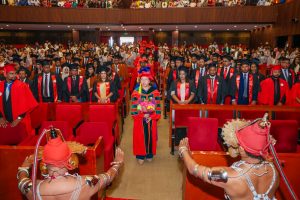
Ph.D. or EdD? Aspiring education leaders encounter this as one of the initial choices when examining possibilities for advanced degrees. Never before has the discipline experienced a greater demand for leaders. Educators presently encounter a multitude of challenges, including but not limited to the integration of novel educational methodologies and technologies, the resolution of diversity and other social concerns, and the management of expanding demands for remote learning. Prior to pursuing an EdD or PhD, prospective students must examine the distinctions between the two in order to ascertain which track corresponds most closely with their interests and goals.
Although both degrees equip their recipients for fruitful professional lives and positions of leadership in the education sector, they diverge considerably with regard to the areas of concentration that are taught and the customary trajectories of graduates. Prospective leaders in education who are undecided as to whether to pursue an EdD or a PhD should be aware of the distinctions between the two academic disciplines prior to making a decision.
An EdD is a doctoral-level degree in education that equips candidates for leadership positions in institutions of higher learning. Education policy, research methods, contemporary social and political issues that affect educators and students, team and procedure development, collaboration with internal and external partners, budget management and planning are all substantial components of EdD curricula.
EdD programs offer a comprehensive set of resources and a strong grounding in the functioning of contemporary educational systems, in addition to a wealth of knowledge for developing strategies and executing solutions that promote the success of educational institutions and organizations. An EdD holder is qualified to teach or work as an educator; however, the primary objective of the degree program is to prepare graduates to assume leadership roles within educational organizations.
Doctorates are typically earned by professionals and individuals subsequent to the completion of a master’s degree. Ph.D.s are frequently awarded to students who complete their studies in education or other research-oriented fields, in addition to those who wish to become university and college instructors. While the specific curriculum for a PhD in education may differ among institutions, it typically comprises a substantial dissertation addressing subjects or topics within the realm of education and coursework in teaching methods and educational research and evaluation.

